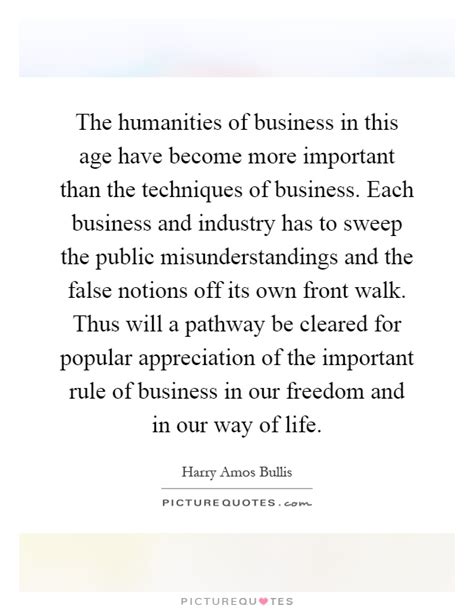A Quote by Joan Robinson
But, as soon as speculators become an important influence in the market, their business is to speculate on each others behaviour.
Related Quotes
The humanities of business in this age have become more important than the techniques of business. Each business and industry has to sweep the public misunderstandings and the false notions off its own front walk. Thus will a pathway be cleared for popular appreciation of the important rule of business in our freedom and in our way of life.
Speculators are obsessed with predicting: guessing the direction of stock prices. Every morning on cable television, every afternoon on the stock market report, every weekend in Barron's, every week in dozens of market newsletters, and whenever business people get together. In reality, no one knows what the market will do; trying to predict it is a waste of time, and investing based upon that prediction is a purely speculative undertaking.
If the knowledge of torture of others makes you sick, it is a case of sympathy... It can be argued that behaviour based on sympathy is in an important sense egoistic, for one is oneself pleased at others' pleasure and pained at others' pain, and the pursuit of one's own utility may thus be helped by sympathetic action.
My research suggests that when people get rebuffed they become frustrated and angry, but they would do better to become curious about the reason for the rejection. I also found that people assume that others are like them, operating under the same knowledge, beliefs, constraints and priorities. This mirror assumption makes it easier to speculate about why others act in the way they do, but sometimes the mirror assumption is wrong.
As a bull market turns into a bear market, the new pros turn into optimists, hoping and praying the bear market will become a bull and save them. But as the market remains bearish, the optimists become pessimists, quit the profession, and return to their day jobs. This is when the real professional investors re-enter the market.
The dialectical critique of positivist habits of mind ... is interested only in behaviour which is 'important' to the actor; that is, behaviour which is emotionally charged to the degree that it is either frequently recalled, reflected upon, or day-dreamed about. ... That science which is less discriminating in the behaviour it chooses to investigate gains clarity and distinctiveness at the cost of confining itself to the trivial.




































